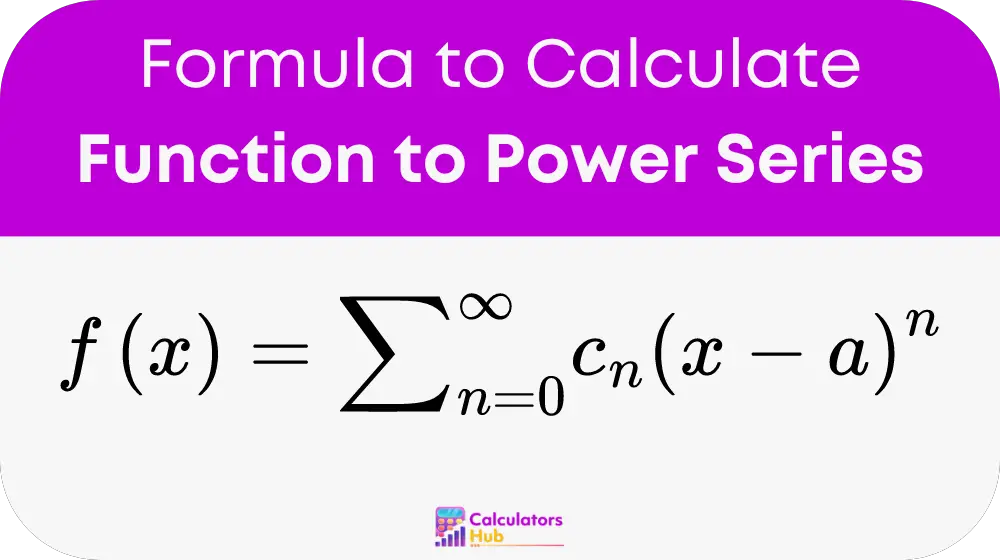The Convert Function to Power Series Calculator is a specialized tool that expresses any mathematical function as an infinite sum of terms involving powers of a variable. This representation is particularly useful in fields like physics, where such expansions simplify the solutions to differential equations, and in computer science for algorithm development.
Formula
To convert a function to a power series, we use the following formula:

Where:
cnrepresents the nth coefficient of the power series.ais the point around which the series is centered. To find the coefficientscn
cn = f^{(n)}(a) / n!
Here, f^{(n)}(a) is the nth derivative of f(x) evaluated at x = a, and n! is the factorial of n.
This mathematical expression enables us to break down complex functions into more manageable forms.
Table of General Terms for Common Searches
The following table lists common functions alongside their power series expansions, providing a quick reference for users:
| Function (f(x)) | Power Series Expansion | Center (a) |
|---|---|---|
| e^x | 1 + x + x^2/2! + … | 0 |
| sin(x) | x – x^3/3! + x^5/5! – … | 0 |
| ln(1+x) | x – x^2/2 + x^3/3 – … | 0 |
Example
Consider the function e^x. Using our calculator, the power series expansion around x = 0 is:
e^x = 1 + x + x^2/2! + x^3/3! + …
This example demonstrates the ease with which complex exponential functions can be represented for practical applications.
Most Common FAQs
A power series is an infinite sum of terms, each term being a multiple of powers of a variable. It represents functions in a format that is easy to manipulate mathematically.
The accuracy depends on the number of terms considered in the series. More terms result in higher accuracy, especially near the center point a.